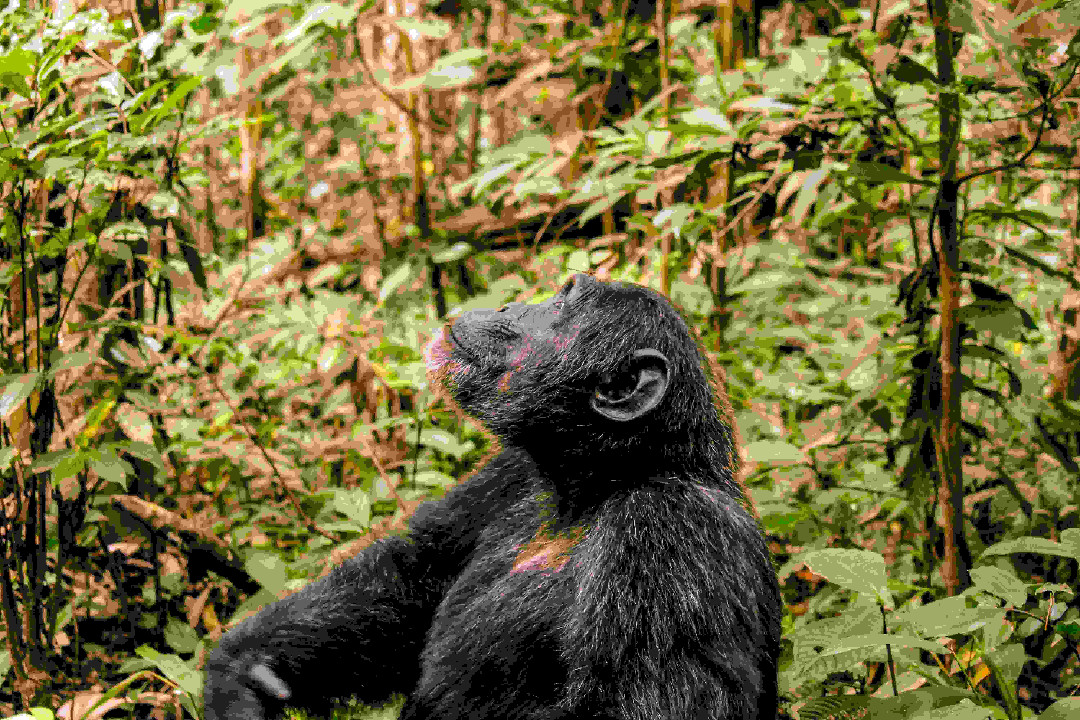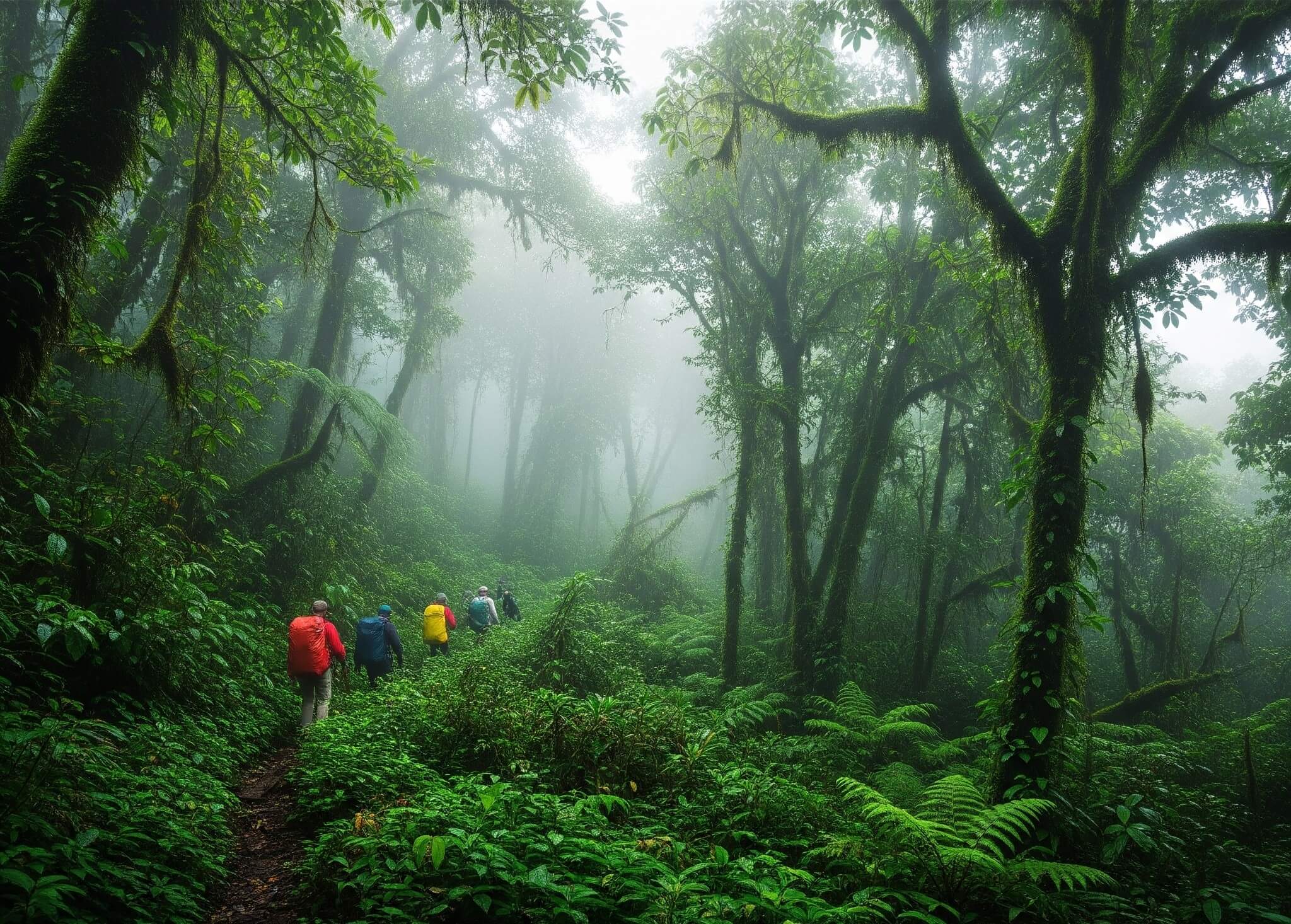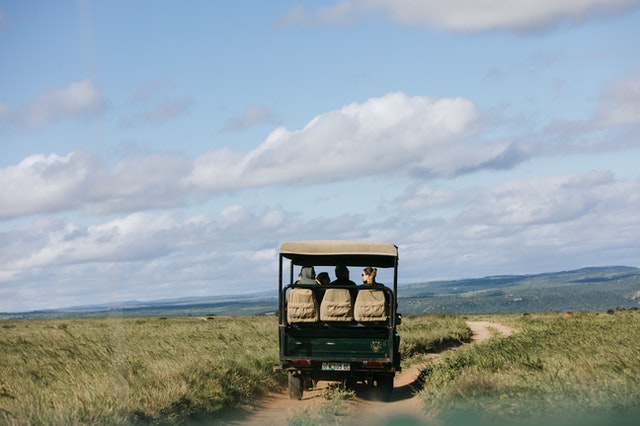Uganda vs Rwanda: Cheaper Gorilla Trekking? Unveiling the True Safari Costs
The Ultimate Primate Encounter – But at What Price?
The chance to look into the eyes of a wild mountain gorilla is, for many, the pinnacle of an African safari. These magnificent creatures, found only in the Virunga Massif and Bwindi Impenetrable National Park, draw adventurers from across the globe. When planning this once-in-a-lifetime experience, a crucial question often arises: Uganda vs Rwanda safari costs – which destination offers a more budget-friendly gorilla trekking experience? While both nations promise an unparalleled encounter, their approaches to tourism, and consequently their pricing, differ significantly. This in-depth guide will break down the expenses, allowing you to make an informed decision for your primate adventure.
The Allure of Gorilla Trekking: Why It's Worth the Investment
Before we delve into the numbers and discuss Uganda vs Rwanda safari costs, let’s first appreciate why gorilla trekking commands such a premium. Mountain gorillas are critically endangered, with only around 1,000 individuals left in the wild. Trekking permits contribute directly to their conservation, habitat protection, and community development around the national parks. Each trekking experience is limited to a small group of visitors (typically 8 per gorilla family per day) for just one hour, minimizing disturbance to the gorillas. The journey through dense rainforest, guided by experienced rangers, to find these gentle giants is an adventure in itself, culminating in an intimate, awe-inspiring hour that few forget.
Uganda Gorilla Trekking: The Often More Affordable Option
Uganda has long been known as the more budget-friendly destination for gorilla trekking, and for good reason. Its approach aims to make this incredible experience accessible to a wider range of travelers, without compromising on the quality of the encounter or the conservation efforts.
- Gorilla Permit Costs in Uganda:
Currently, a gorilla trekking permit in Uganda costs between $500 & $800 USD for foreign non-residents. This fee grants you one hour with a habituated gorilla family. This price has been stable and is significantly lower than Rwanda’s, directly impacting the overall Uganda vs Rwanda safari costs. Permits are issued by the Uganda Wildlife Authority (UWA).
- Where to Trek in Uganda:
Uganda offers two primary locations for gorilla trekking:
- Bwindi Impenetrable National Park: Home to over half of the world’s remaining mountain gorillas, Bwindi is the most popular trekking destination in Uganda. It’s divided into four sectors: Buhoma, Ruhija, Rushaga, and Nkuringo, each offering different trekking experiences and accommodation options.
- Mgahinga Gorilla National Park: Part of the Virunga Massif, Mgahinga is a smaller park but offers unique trekking opportunities, including a chance to see golden monkeys. Gorilla families here occasionally cross into Rwanda or DR Congo, so flexibility is key, but it provides another incredible trekking experience.
- Accessibility and Logistics:
Getting to Uganda’s gorilla parks typically involves a longer journey compared to Rwanda. From Entebbe International Airport (EBB) or Kampala, it’s generally an 8-10 hour drive to Bwindi or Mgahinga. While long, the drive offers scenic views of Uganda’s diverse landscapes. Internal flights are also available from Entebbe/Kajjansi to airstrips near the parks (e.g., Kihihi or Kisoro), significantly cutting travel time but adding to the cost.
- Accommodation Options:
Uganda boasts a wide array of accommodation options around its gorilla parks, catering to all budgets. You can find everything from basic campsites and guesthouses (around $50-$150 per night) to mid-range lodges ($200-$400 per night) and luxury eco-lodges ($500+ per night). This flexibility in lodging greatly contributes to making Uganda a more attractive option when comparing Uganda vs Rwanda safari costs.
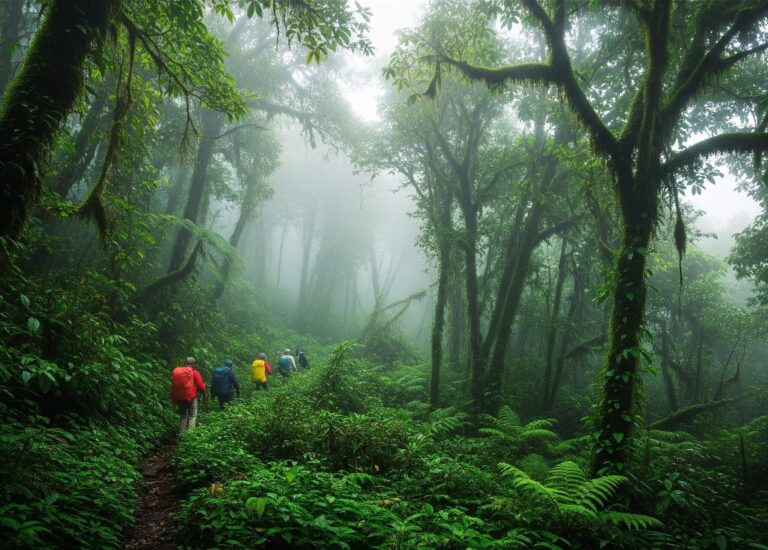
Rwanda Gorilla Trekking: The Premium, Luxury Experience
Rwanda has strategically positioned itself as a high-end, luxury gorilla trekking destination, emphasizing exclusivity and ease of access.
- Gorilla Permit Costs in Rwanda:
In stark contrast to Uganda, a gorilla trekking permit in Rwanda costs a hefty $1,500 USD for all visitors. This significant difference is the primary factor driving the higher overall Uganda vs Rwanda safari costs when considering Rwanda. This price reflects Rwanda’s commitment to high-value, low-impact tourism. Permits are managed by the Rwanda Development Board (RDB).
- Where to Trek in Rwanda:
All gorilla trekking in Rwanda takes place in Volcanoes National Park (Parc National des Volcans). This park is part of the larger Virunga Massif and is famous for being the research base for Dian Fossey.
- Accessibility and Logistics:
Rwanda offers unparalleled ease of access to its gorilla park. Volcanoes National Park is approximately a 2-3 hour drive from Kigali International Airport (KGL), making it possible to arrive, trek the next day, and depart swiftly. The roads are generally well-maintained, contributing to a smoother and quicker transfer.
- Accommodation Options:
Consistent with its high-end tourism strategy, accommodation around Volcanoes National Park tends to be more luxurious and, consequently, more expensive. While budget options exist, the prevalent lodges are high-end, ranging from $400-$1000+ per night. This focus on luxury accommodation also influences the higher Uganda vs Rwanda safari costs.
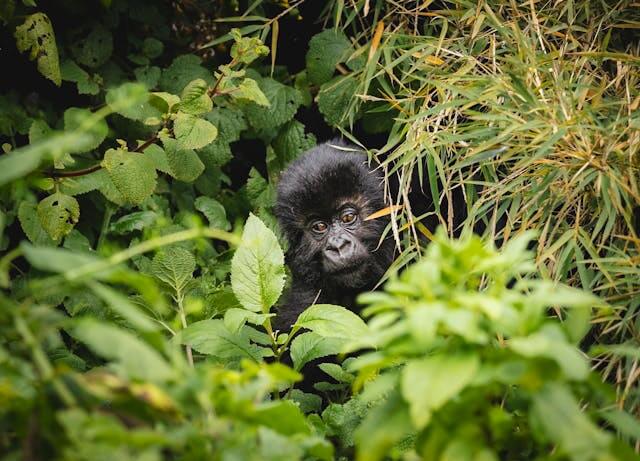
Uganda vs Rwanda Safari Costs: A Detailed Comparison
To put the Uganda vs Rwanda safari costs into perspective, let’s look at a comparative table based on average figures (excluding international flights). Please note that actual costs can vary widely depending on specific choices of accommodation, transportation, and additional activities.
Cost Component | Uganda (Approx per person) | Rwanda (Approx per person) |
Gorilla Permit | $800 USD | $1,500 USD |
Accommodation | $150 – $500+ per night (mid-range to luxury) | $400 – $1,000+ per night (mid-range to luxury) |
Transport (Road) | $100 – $300 per day (private vehicle, driver-guide, fuel) | $150 – $400 per day (private vehicle, driver-guide, fuel) |
Internal Flights | $250 – $350 one way (optional, saves driving time) | N/A (shorter drive, not typically needed) |
Visa | $50 USD (or East African Tourist Visa $100 for multiple countries) | $50 USD |
Tipping & Porter | $10 – $20 per day (guide, ranger, lodge staff, porter) | $10 – $20 per day (guide, ranger, lodge staff, porter) |
Total for 3-Day Trek | Roughly $2,000 – $4,000+ (Mid-range, incl. permit) | Roughly $3,000 – $6,000+ (Mid-range, incl. permit) |
Beyond the Permit: What Influences the Total Gorilla Safari Cost?
While the permit fee is the largest single cost, several other factors contribute to the total Uganda vs Rwanda safari costs:
- Transportation: This includes international flights to either Entebbe (Uganda) or Kigali (Rwanda), as well as ground transfers or internal flights to the gorilla parks. Longer distances in Uganda can mean higher fuel costs or the need for internal flights.
- Accommodation Type: As highlighted, luxury lodges will significantly increase your overall cost in both countries, but Rwanda generally has more high-end options as standard.
- Duration of Safari: A longer safari means more nights of accommodation, more days of vehicle hire, and potentially more activities, all adding to the expense.
- Additional Activities: Both countries offer incredible safari extensions. In Uganda, you can combine gorilla trekking with chimpanzee tracking in Kibale National Park, game drives in Queen Elizabeth National Park (renowned for its tree-climbing lions), or even whitewater rafting on the Nile. These add-ons affect your overall Uganda vs Rwanda safari costs. Rwanda offers opportunities for golden monkey trekking, cultural visits, and exploring Kigali’s vibrant city scene.
- Porter and Tipping: It’s highly recommended to hire a porter for your trek ($15-$20) to support local communities and help with your bag. Tipping guides, rangers, and lodge staff is also customary.
- Visa Costs: Both countries typically require a visa, adding a minor but necessary cost. An East African Tourist Visa ($100 USD) allows entry into Uganda, Rwanda, and Kenya for 90 days, which can be cost-effective if you plan to visit multiple countries.
- Personal Expenses: Souvenirs, extra drinks, and personal items will also contribute to your budget.
Maximizing Your Gorilla Trekking Budget in Uganda
If the Uganda vs Rwanda safari costs comparison points you towards Uganda for a more affordable experience, here are some tips to optimize your budget further:
- Travel During Low Season: The rainy seasons (March-May and October-November) often see discounted accommodation rates. While the trekking can be muddier, it’s perfectly doable, and the gorilla encounters are just as rewarding.
- Join a Group Tour: Group tours often split transportation and guide costs, making them more economical than private safaris.
- Choose Mid-Range or Budget Accommodation: Opt for comfortable, clean guesthouses or mid-range lodges instead of luxury options. Many still offer excellent service and proximity to the parks.
- Book Permits in Advance: Gorilla permits are limited and sell out quickly, especially for peak season. Book yours months ahead to secure your spot. You can book directly through UWA or via a reputable tour operator.
- Combine with Other Affordable Ugandan Safaris: Uganda offers excellent value for money on game drives, chimpanzee trekking, and cultural tours. Combining these with your gorilla trek can make your overall trip more cost-effective. For instance, ATACO Country Resort in Fort Portal is perfectly positioned for exploring Kibale National Park for chimpanzee tracking and is a convenient stopover on your way to or from Queen Elizabeth National Park.
- Consider Road Travel over Internal Flights: While longer, driving is significantly cheaper than flying between parks.
Fort Portal & ATACO Country Resort: Your Gateway to Western Uganda Safaris
While Fort Portal is not directly a gorilla trekking hub, its strategic location makes it an excellent base for broader Western Uganda safaris. ATACO Country Resort, nestled in the scenic landscapes of Fort Portal, offers comfortable and authentic Ugandan hospitality. From here, you can easily venture to:
- Kibale National Park: The primate capital of the world, offering incredible chimpanzee tracking experiences.
- Queen Elizabeth National Park: Famous for its diverse wildlife, including the tree-climbing lions of Ishasha, elephants, buffaloes, and fantastic boat safaris on the Kazinga Channel.
- Rwenzori Mountains National Park: For those seeking hiking and mountaineering adventures.
Combining your gorilla trek with a visit to these nearby parks from a central location like Fort Portal can enhance your overall safari experience and potentially optimize your logistics, impacting your total Uganda vs Rwanda safari costs planning. Explore Fort Portal activities to see how we can enrich your Ugandan adventure!
Making Your Choice for an Unforgettable Trek
When weighing the Uganda vs Rwanda safari costs for gorilla trekking, Uganda clearly stands out as the more affordable option, primarily due to its significantly lower permit fee. This allows travelers to allocate more of their budget to longer safaris, more diverse activities, or simply enjoy the same high-quality experience at a lower price point. Rwanda, while more expensive, offers quicker access and a more overtly luxurious tourism infrastructure.
Ultimately, the best choice depends on your budget, time constraints, and travel preferences. Both countries offer an indescribable encounter with mountain gorillas, an experience that transcends monetary value. By understanding the cost breakdown, you can confidently plan your journey to witness these majestic creatures in their natural home, contributing to their survival for generations to come.
Don’t miss out on the adventure of a lifetime! Explore Uganda’s stunning national parks and incredible wildlife. Visit the Uganda Tourism Board website for more information on planning your trip to the Pearl of Africa.
